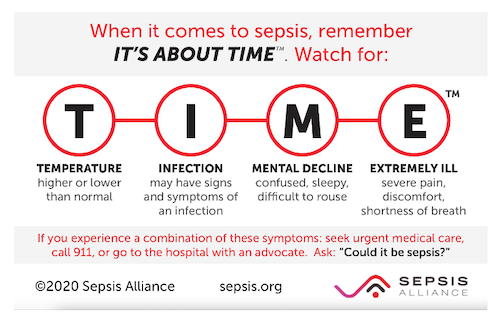Quiz: How Much Do You Know About Sepsis?
December 1, 2021

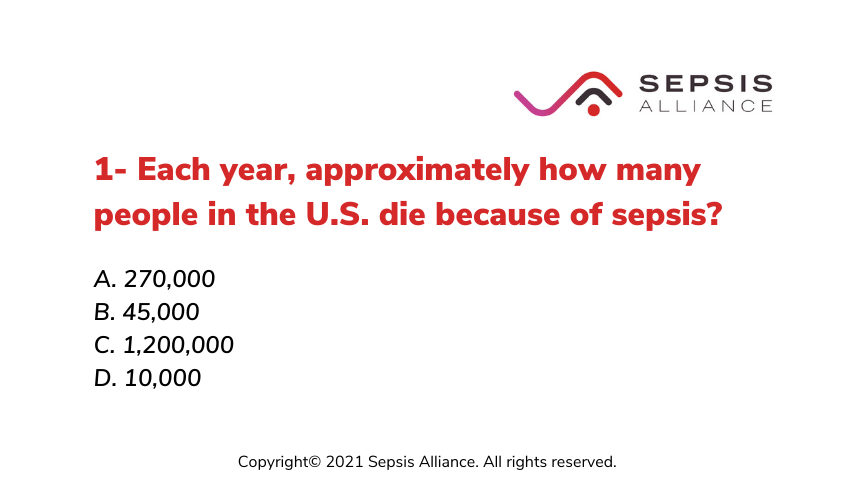
 A - Every year, 270,000 people in the U.S. die from sepsis and septic shock. Every two minutes, a life is lost to sepsis in the U.S. That number jumps to an estimated 8 million across the globe.
A - Every year, 270,000 people in the U.S. die from sepsis and septic shock. Every two minutes, a life is lost to sepsis in the U.S. That number jumps to an estimated 8 million across the globe.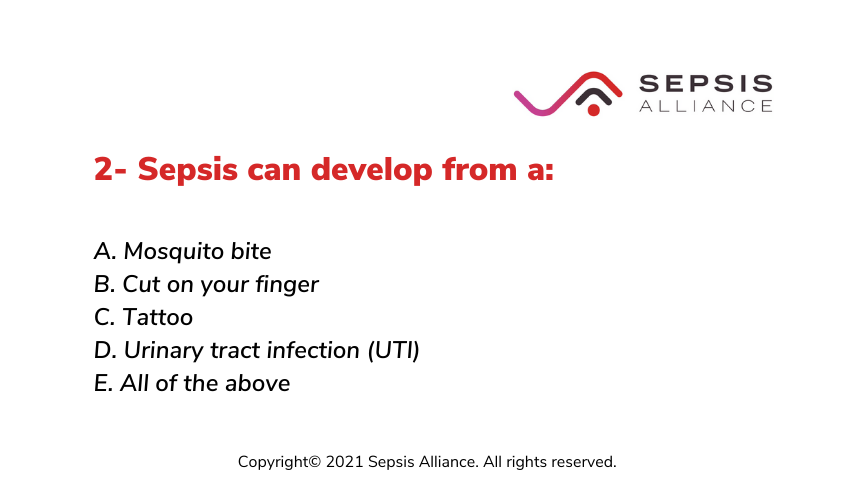
 E - All of the above. Most sepsis cases come from the community. Sepsis can develop from any type of infection, either a break in the skin or internally. Preventing and treating infections as soon as they develop are key to helping prevent sepsis.
E - All of the above. Most sepsis cases come from the community. Sepsis can develop from any type of infection, either a break in the skin or internally. Preventing and treating infections as soon as they develop are key to helping prevent sepsis.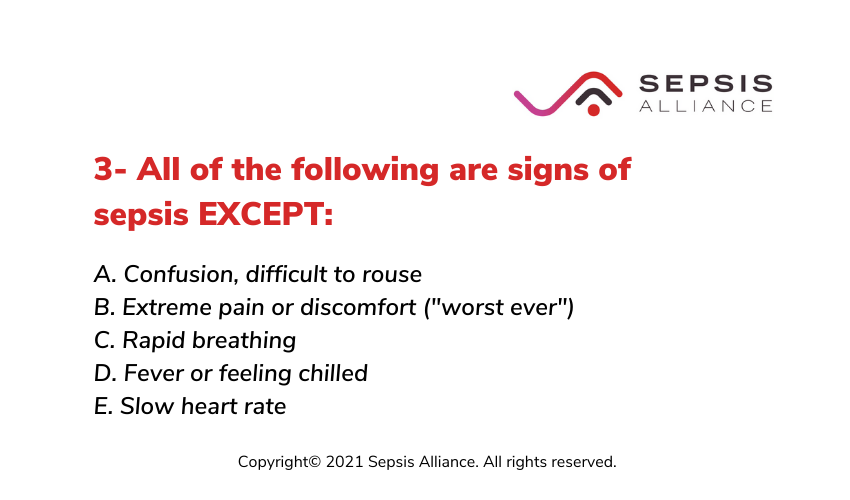
 E – Slow heart rate. Only 15% of adults in the U.S. could correctly name all four common signs of sepsis, one of which is a rapid heart rate as your heart works to pump blood through your body. You can save a life by knowing the signs of sepsis.
E – Slow heart rate. Only 15% of adults in the U.S. could correctly name all four common signs of sepsis, one of which is a rapid heart rate as your heart works to pump blood through your body. You can save a life by knowing the signs of sepsis.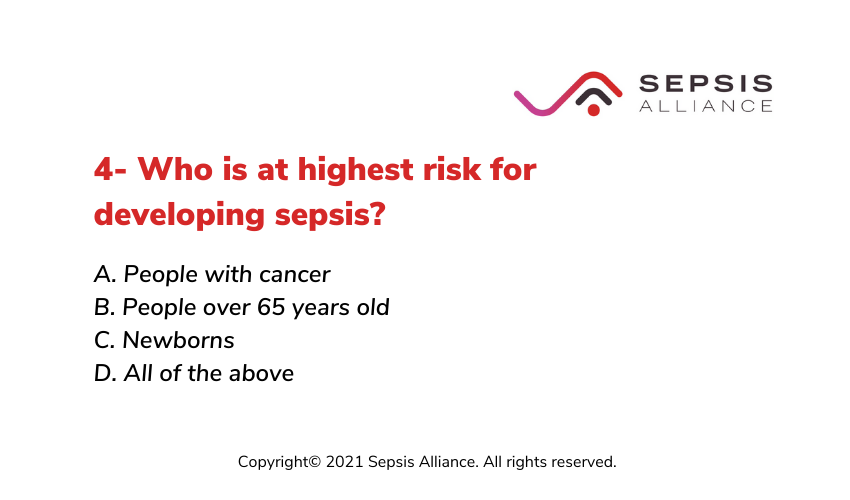
 D – All of the above. Anyone can develop sepsis, no matter how healthy they are. However, it's especially risky for those with weaker immune systems. This includes people who are very young, very old, and those with chronic diseases or illnesses that use medications that suppress the immune system.
D – All of the above. Anyone can develop sepsis, no matter how healthy they are. However, it's especially risky for those with weaker immune systems. This includes people who are very young, very old, and those with chronic diseases or illnesses that use medications that suppress the immune system.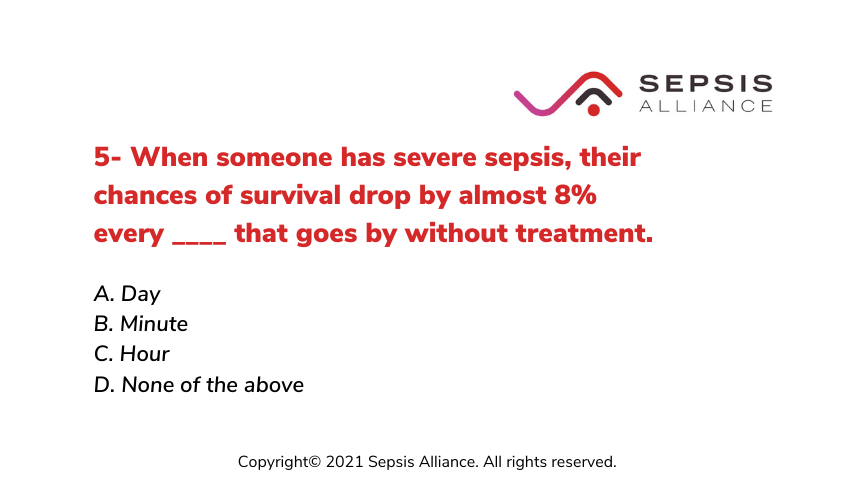
 C - Hour. Sepsis can be treated if it's identified early, which prevents it from progressing and leading to extreme consequences like amputation or death. Getting medical attention right away if you suspect sepsis is as important as treating heart attacks and strokes quickly.
C - Hour. Sepsis can be treated if it's identified early, which prevents it from progressing and leading to extreme consequences like amputation or death. Getting medical attention right away if you suspect sepsis is as important as treating heart attacks and strokes quickly.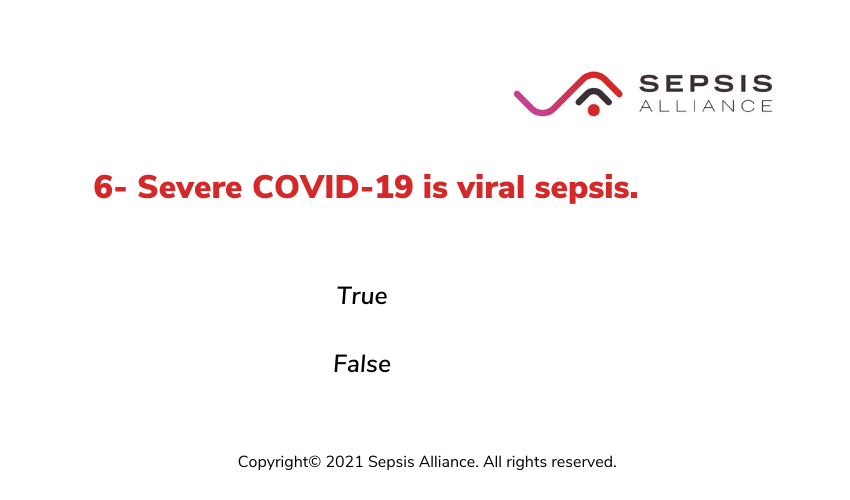
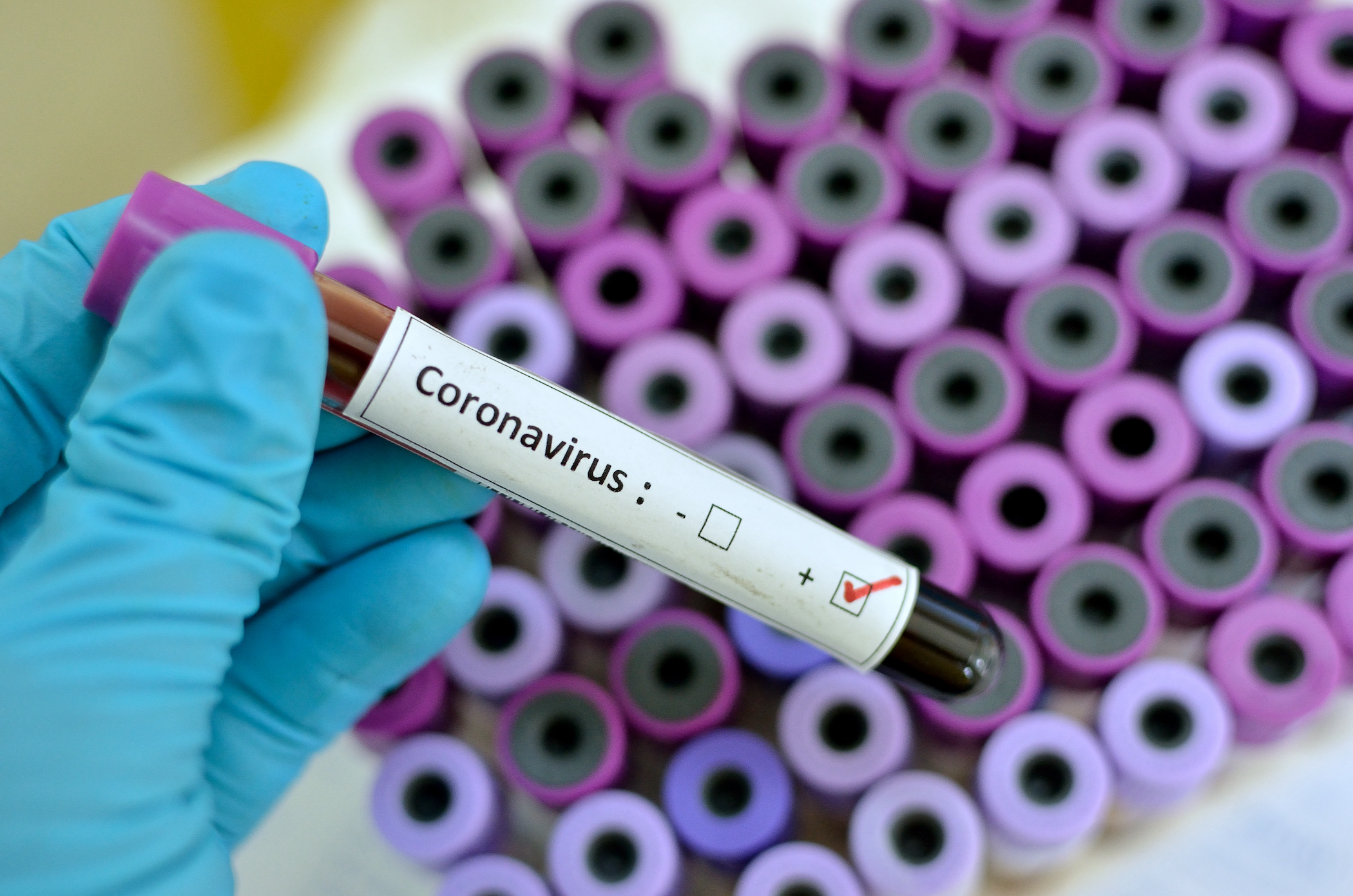 True. Severe COVID-19 is viral sepsis. People who survive severe COVID-19 survive sepsis and can experience issues related to post-sepsis syndrome (PSS), as well as long COVID.
True. Severe COVID-19 is viral sepsis. People who survive severe COVID-19 survive sepsis and can experience issues related to post-sepsis syndrome (PSS), as well as long COVID.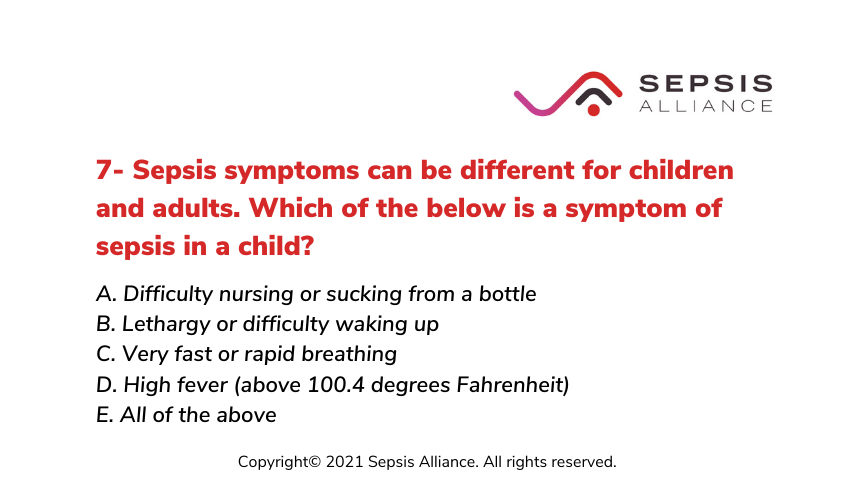
 E- All of the above. More than 75,000 children develop severe sepsis each year in the U.S. Many have lasting complications. If a child has a combination of any of these symptoms, get medical attention right away. When in doubt, check with your doctor or bring your child to the emergency room for evaluation.
E- All of the above. More than 75,000 children develop severe sepsis each year in the U.S. Many have lasting complications. If a child has a combination of any of these symptoms, get medical attention right away. When in doubt, check with your doctor or bring your child to the emergency room for evaluation.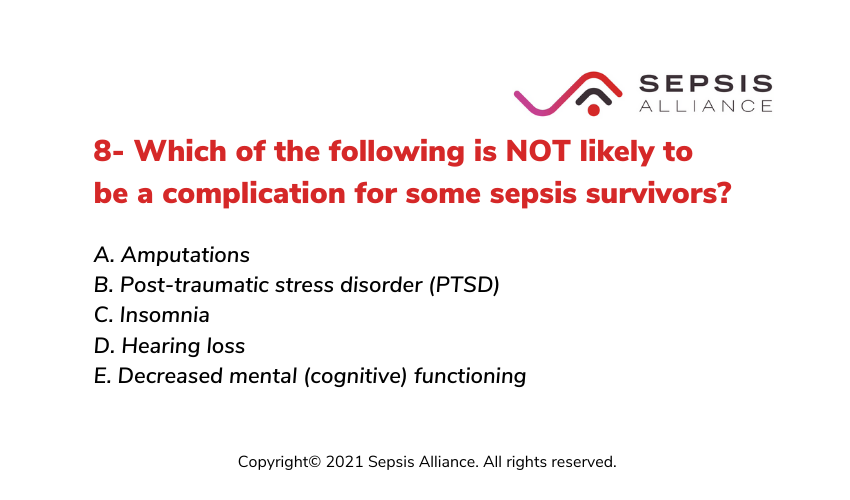
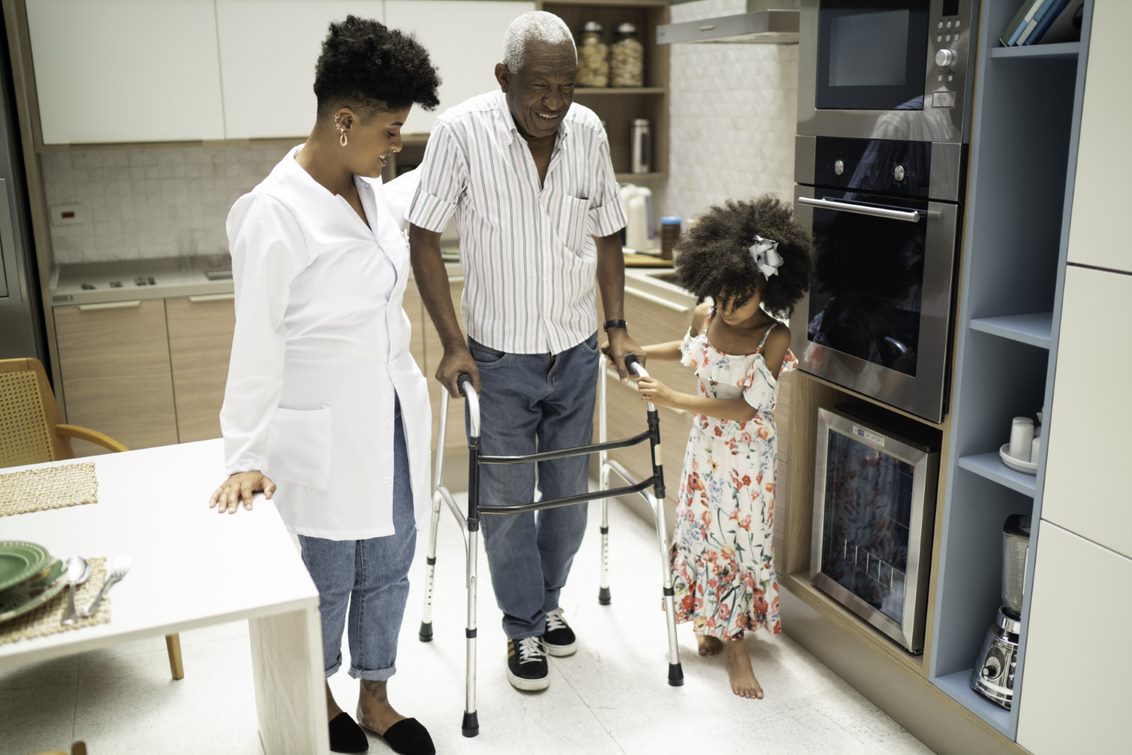 D – Hearing loss. There are more than 1.6 million cases of sepsis every year and survivors often face long-term effects, also known as post-sepsis syndrome, including amputations, anxiety, memory loss, chronic pain and fatigue, and more. Although hearing loss could occur, it’s not a likely complication.
D – Hearing loss. There are more than 1.6 million cases of sepsis every year and survivors often face long-term effects, also known as post-sepsis syndrome, including amputations, anxiety, memory loss, chronic pain and fatigue, and more. Although hearing loss could occur, it’s not a likely complication.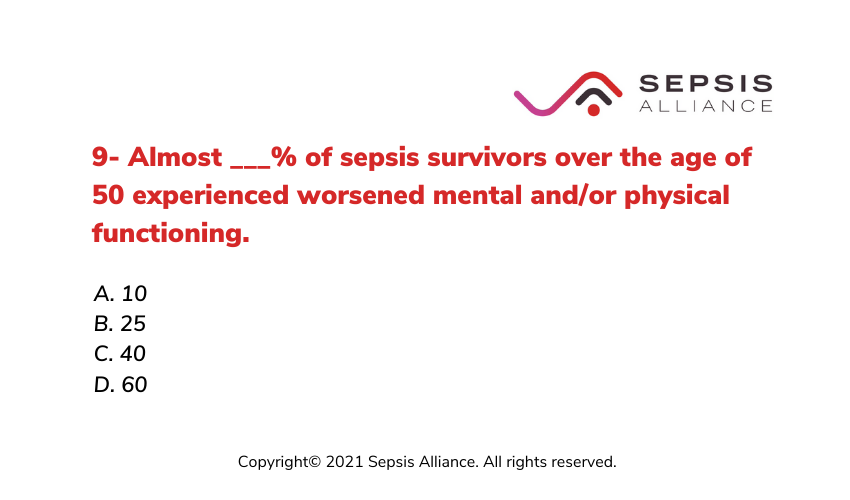
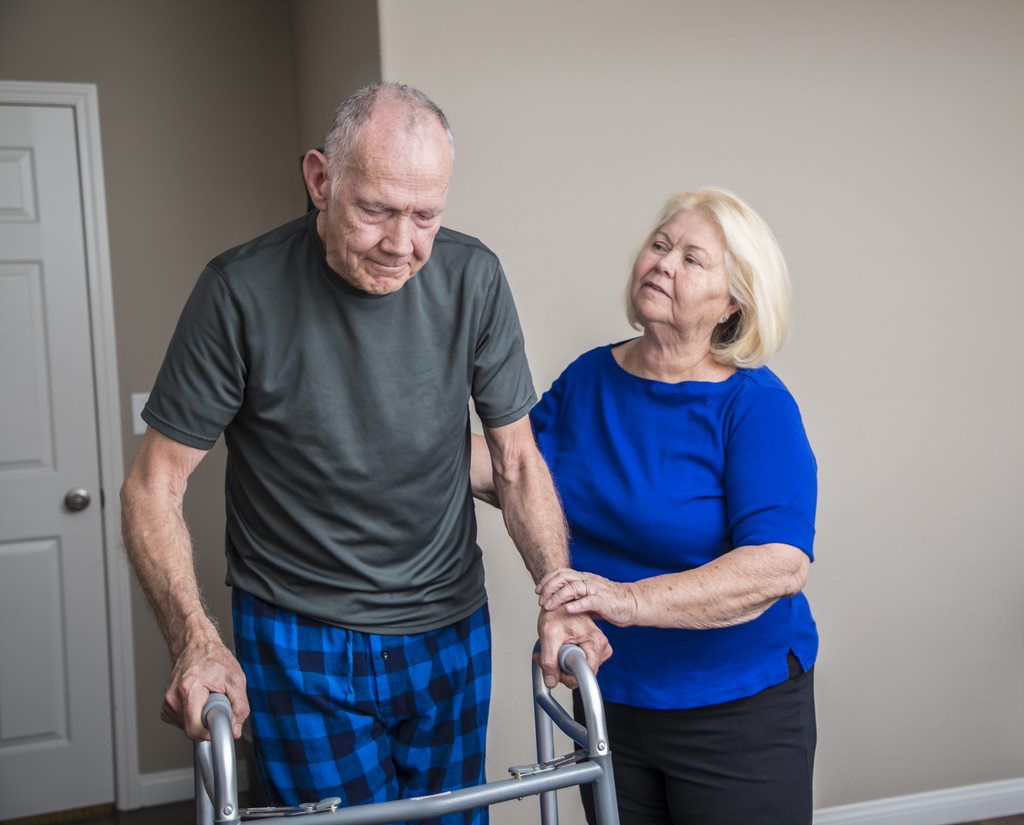 D – 60%. Almost 60% of sepsis survivors over the age of 50 experience worsened cognitive (mental) and/or physical function. Older sepsis survivors are left with, on average, one to two new limitations on activities of daily living (e.g. bathing, dressing, managing money) after hospitalization.
D – 60%. Almost 60% of sepsis survivors over the age of 50 experience worsened cognitive (mental) and/or physical function. Older sepsis survivors are left with, on average, one to two new limitations on activities of daily living (e.g. bathing, dressing, managing money) after hospitalization.